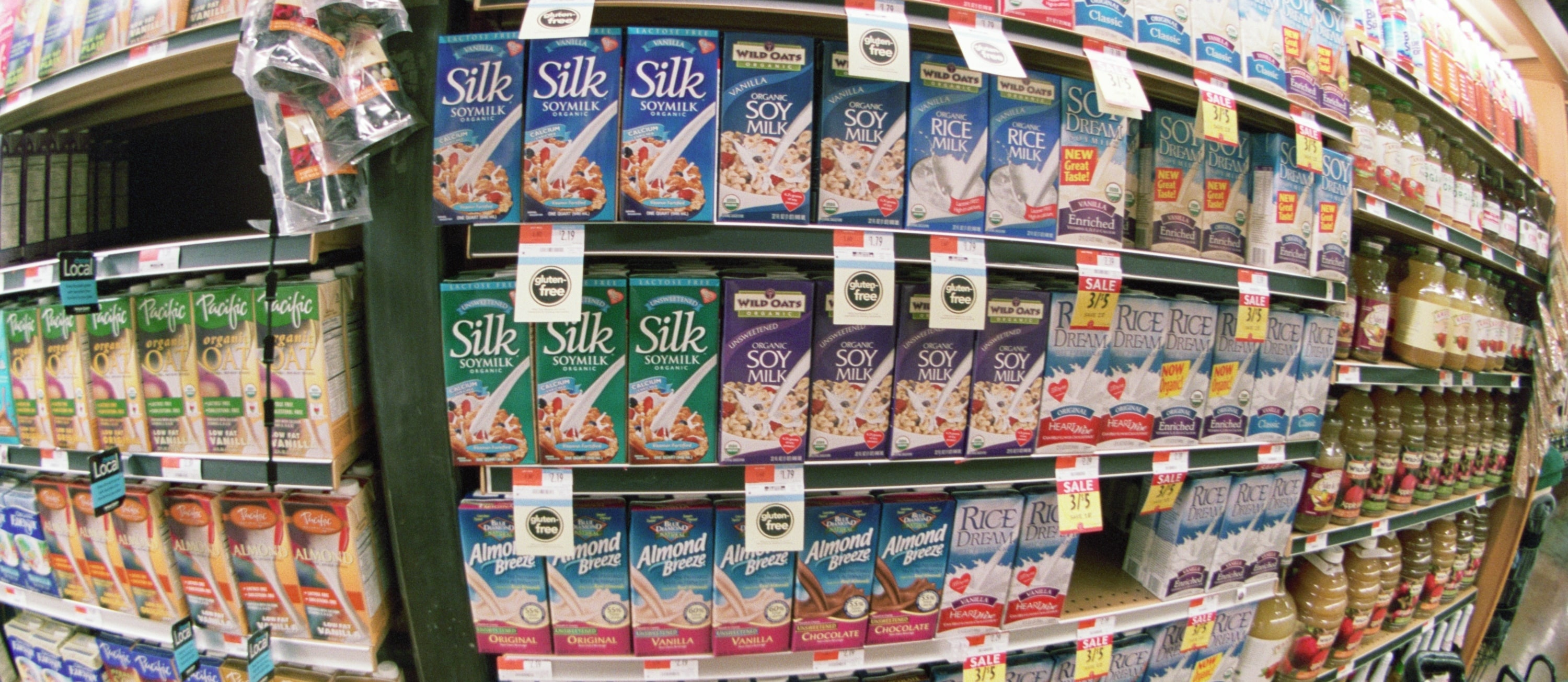Six hundred years ago, people living along the coast of Carragheen County Ireland started using a red algae, which came to be known as Irish moss, to make a jellied dessert. This moss is now the source of carrageenan, a fat substitute (perhaps most famously used in the failed McLean Deluxe) and a food additive used as a thickener in dairy and nondairy products.
In 2008 I raised a concern about carrageenan. We had known for decades that it had harmful effects on laboratory animals, but in 2008 the first study on human cells to “suggest that carrageenan exposure may have a role in development of human intestinal pathology” was conducted. This was all five years ago, though. What’s the update? (See Is Carrageenan Safe?)
After the activation of inflammatory pathways was demonstrated in actual human colon tissue samples, Europe pulled it from infant formula, concerned that infants might be getting too much at such a vulnerable age. The latest suggests carrageenan consumption could possibly lead to a leaky gut by disrupting the integrity of the tight junctions that form around the cells lining our intestine—the barrier between our bloodstream and the outside world. This was just an in vitro study, though, done in a Petri dish. We still don’t know what effects, if any, occur in whole human beings. Some researchers advise consumers to select food products without carrageenan, accusing the FDA of “ignoring [its] harmful potential.”
Personally, after having reviewed the available evidence, I continue to view carrageenan the way I view acrylamide, another potential, but unproven hazard. Acrylamide is a chemical formed by cooking carbohydrates at high temperatures. So should we avoid eating such foods, like the EPA suggests? Well, “Food safety concerns must also be considered [in the context of dietary] consequences.” Where’s it found the most? Foods that are already unhealthy.
So sure, we can use our concern about the probable carcinogen,acrylamide as yet another reason to avoid potato chips and French fries, but until we know more I wouldn’t cut out healthful foods like whole grain bread.
Similarly, I’d use potential concerns about carrageenan as additional motivation to avoid unhealthy foods like cream cheese, but I wouldn’t cut out healthful foods until we know more. I would, however, suggest that those with inflammatory bowel syndrome or other gastrointestinal problems try cutting out carrageenan at least temporarily to see if symptoms improve.
Titanium dioxide is another additive used in nondairy substitutes. See Titanium Dioxide & Inflammatory Bowel Disease for the latest on its safety.
Other videos on food additives include:
- When Nitrites Go Bad
- Is Sodium Benzoate Harmful?
- Are Artificial Colors Bad for You?
- Is Potassium Sorbate Bad for You?
-Michael Greger, M.D.
PS: If you haven’t yet, you can subscribe to my videos for free by clicking here and watch my full 2012 – 2015 presentations Uprooting the Leading Causes of Death, More than an Apple a Day, From Table to Able, and Food as Medicine.
